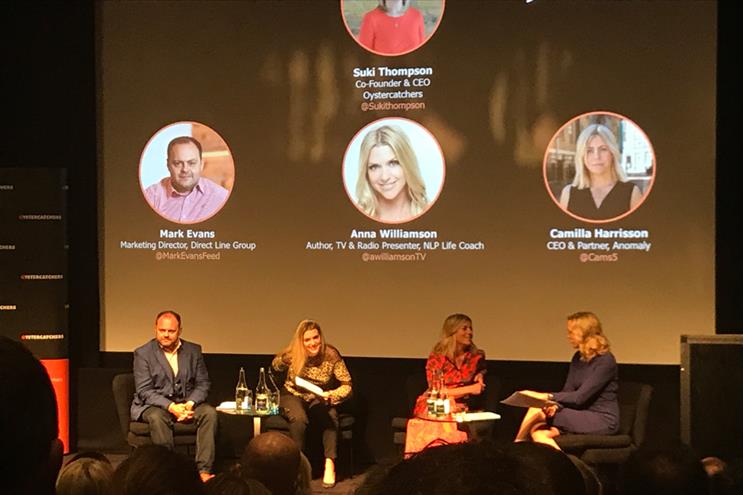
The insurer’s marketing director told a panel that the issue of neurodiversity – the recognition of neurological differences between people – was a personal one for him because he has a daughter with dyslexia.
"Having been through that rollercoaster ride and the drag and the negativity of feeling stupid, that other people can do things that you have no idea about, you forget that you can do some amazing things that they can’t do. She’s been through some really dark times," he explained.
Evans went on to say: "This is my thing for a very specific reason. It’s not just from a social justice perspective… the problem with inner battles is that they’re not very ‘communal’. Race, sex, sexuality are well played out, you can commune around those topics, but with inner battles you don’t really get that support."
A better understanding of how people’s minds work is particularly important for the marketing industry, Evans warned, because marketers are increasingly expected to be both "left-brained" and "right-brained" simultaneously.
"We’re being challenged with ever more data, analytics, AI and all that, and on the other side asked to be still as creative, if not more so, than ever before. This notion of whole-brained marketing – frankly that’s just impossible, people’s brain’s aren’t wired that way….
"The machines are going to do all the stuff in the middle; this is about innovation at the edges – extreme of left-brain and right-brain to get ahead in a more competitive world. "
Anna Williamson, the broadcaster, life coach and author of Breaking Mad, spoke of her own battles with mental health after suffering a breakdown 12 years ago. Williamson said she had mentally burned out after trying too hard to please her boss by being a "yes woman" who would take on every available task and try to complete it early to make an impression.
For organisations, there is "no one size fits all" for an ideal workplace culture, Williamson insisted, but she said company leaders need to set an example for subordinates that "it is ok" to refuse to do work outside normal working hours, or to ask to work from home.
With regards to mental health, Williamson said: "We need to start changing the language and stop being so shit scared of [talking about mental health]. We don’t want to offend but we go so far the other way that we don’t want to get into the nitty gritty."
The panel, hosted by Oystercatchers chief executive and co-founder Suki Thompson, all agreed that workplaces had changed dramatically from 10-15 years ago in terms of working hours and workplace relationships.
Anomaly London chief executive Camilla Harrisson said the workplace model is "so obsolete", particularly how agencies work with clients.
Harrisson said: "If you are a creative business and you are asking people to bring creativity into the workplace, to expect everyone to be the same is madness. If you want people to be really creative you need to allow them to pursue the things that will help them be creative… we’ve got an industry where vertical progression is championed… the reality of young people who are coming into the industry is that’s not what they want.
"[Young people] want a personalised career, they want multiple careers, and you’ve got to create an environment where they can."
Harrison joked: "Now I find myself sitting in the pub on my own!" She explained that, while "almost everyone" used to go to the pub after work, now very few people go for a drink because they have busier social lives outside of work, have other professional interests, and generally drink and smoke less.
She added: "It’s hard for our generation to understand this much more healthy, confident, light transactional relationship that people want to have with the place they work. You just have to get used to it. I find it hard, but it is working."




.jpg)
.jpeg)
